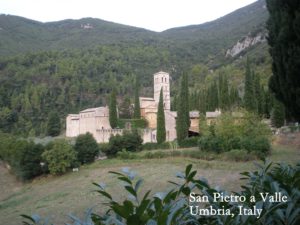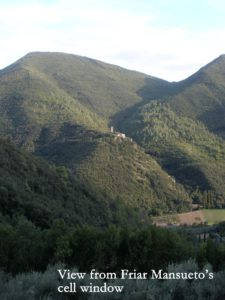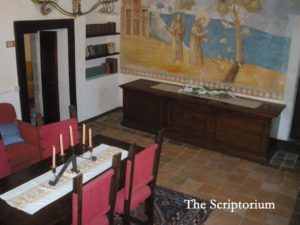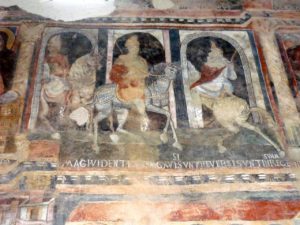 “This castle hath a pleasant seat; the air
“This castle hath a pleasant seat; the air
Nimbly and sweetly recommends itself
Unto our gentle senses.”
(Macbeth act 1, sc. 6)
Two weeks without an entry… Thanks to the “Your Daily Shakespeare” site followers who emailed me questioning the unusually long hiatus.
But….”There is occasions and causes why and wherefore in all things”, as Fluellen explains to Gower on the eve of the Battle of Agincourt in King Henry V.
 In the instance, I had read a summary of the history of the Longobards, the second wave of invaders from the North, following the Goths and followed in turn by the Franks. The region of “Lombardy” is a toponymic witness to the presence of the Longobards in Italy, where they established a series of dukedoms and a kingdom. They were Arians (that is, Christ, though son of God, was subordinate to his Father rather than “consubstantial”, meaning the same). This was believed to be a heresy, costing the usual thousands of lives in the course of the centuries. Eventually, even the Longobards abandoned Arianism and established, among other things, several abbeys throughout Italy.
In the instance, I had read a summary of the history of the Longobards, the second wave of invaders from the North, following the Goths and followed in turn by the Franks. The region of “Lombardy” is a toponymic witness to the presence of the Longobards in Italy, where they established a series of dukedoms and a kingdom. They were Arians (that is, Christ, though son of God, was subordinate to his Father rather than “consubstantial”, meaning the same). This was believed to be a heresy, costing the usual thousands of lives in the course of the centuries. Eventually, even the Longobards abandoned Arianism and established, among other things, several abbeys throughout Italy.
… One of which is San Pietro a Valle in Umbria built in the VIIIth century by Faroald II, duke of Spoleto. In time, it became the mausoleum of the Longobard Dukes. The abbey was almost destroyed by the Saracens and was re-built in the Xth and XIth centuries.
 A noteworthy point of interest is that the abbey section of the compound has been turned into a residence. Hence my visit, that I will recommend to anyone.
A noteworthy point of interest is that the abbey section of the compound has been turned into a residence. Hence my visit, that I will recommend to anyone.
The Romanesque Church hosts on its walls a series of beautiful frescoes. The cloister proper has been turned into a residence. My “cell” had the name of “Fra’ Mansueto”, (Friar Mild), neighbored by cells named for Fra’ Zaccheo, Fra’ Eusebio and Fra’ Bartolo. The inverted commas surrounding “cell” represent that though it was original in shape, it contained a flat screen TV (which I did NOT turn on), Wi-Fi and all the amenities of a luxury hotel. To which I should add a private original “scriptorium” furnished in style – that is a separate room where to read, write or meditate.
 Being located in a remote valley off an already remote valley, residence at the Abbey is (in my view) the closest we can get to the inherent original feel and mood of isolation. Isolation, on the other hand, intended then (and now) to promote spiritual awareness of the great mystery of everything. The night silence is complete, enhanced occasionally by the echoing cry of an owl.
Being located in a remote valley off an already remote valley, residence at the Abbey is (in my view) the closest we can get to the inherent original feel and mood of isolation. Isolation, on the other hand, intended then (and now) to promote spiritual awareness of the great mystery of everything. The night silence is complete, enhanced occasionally by the echoing cry of an owl.
In San Pietro a Valle, the abused rhetorical image of time seeming still on the sceneries of a bygone past acquires some consistency of truth.
Even in and around Ferentillo, the closest inhabited center, the town is still a town and the countryside a countryside in the genuine meaning of the terms. The two entities blend together and integrate each other – creating a most enjoyable space, immune (so far) from the speculative aims of the modern Vandals.
Since 1890 the complex is in private hands – and it is the current family owning the complex that completed the re-structuring in 1998.
The restaurant is excellent and the hall is the same where the original monks ate. Needless to say cuisine and wines are on par with everything else.
While the quoted lines, uttered by Duncan, refer to Macbeth’s castle, they can equally apply to the Abbey of San Pietro a Valle.
In the play. King Duncan has just arrived as a guest at Macbeth’s castle, unaware and unsuspicious that Macbeth plans to kill him.
